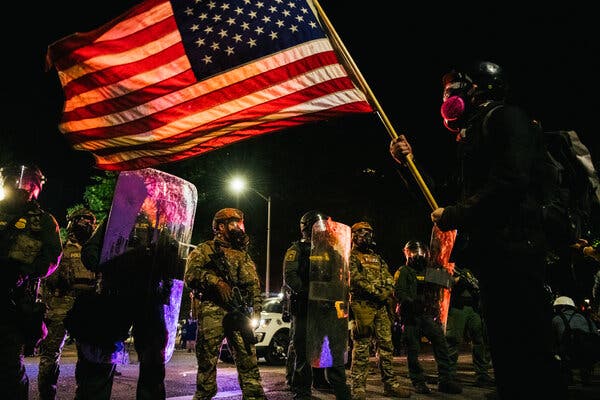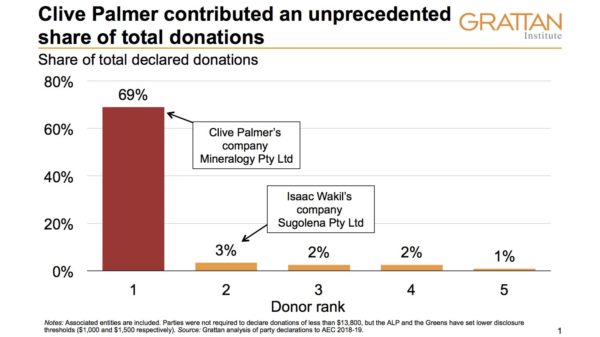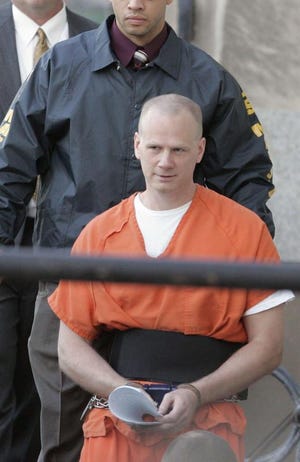Advertisement
Attorney General William P. Barr was also said to have asked prosecutors to explore whether to bring charges against the mayor of Seattle for allowing a police-free protest zone.

WASHINGTON — Attorney General William P. Barr told federal prosecutors in a call last week that they should consider charging rioters and others who had committed violent crimes at protests in recent months with sedition, according to two people familiar with the call.
The highly unusual suggestion to charge people with insurrection against lawful authority alarmed some on the call, which included U.S. attorneys around the country, said the people, who described Mr. Barr’s comments on the condition of anonymity for fear of retribution.
The attorney general has also asked prosecutors in the Justice Department’s civil rights division to explore whether they could bring criminal charges against Mayor Jenny Durkan of Seattle for allowing some residents to establish a police-free protest zone near the city’s downtown for weeks this summer, according to two people briefed on those discussions. Late Wednesday, a department spokesman said that Mr. Barr did not direct the civil rights division to explore this idea.
The directives are in keeping with Mr. Barr’s approach to prosecute crimes as aggressively as possible in cities where protests have given way to violence. But in suggesting possible prosecution of Ms. Durkan, a Democrat, Mr. Barr also took aim at an elected official whom President Trump has repeatedly attacked.
Justice Department representatives did not respond to requests for comment. The Wall Street Journal first reported Mr. Barr’s remarks about sedition.
During a speech on Wednesday night, Mr. Barr noted that the Supreme Court had determined that the executive branch had “virtually unchecked discretion” in deciding whether to prosecute cases. He did not mention Ms. Durkan or the sedition statute.
“The power to execute and enforce the law is an executive function altogether,” Mr. Barr said in remarks at an event in suburban Washington celebrating the Constitution. “That means discretion is invested in the executive to determine when to exercise the prosecutorial power.”
The disclosures came as Mr. Barr directly inserted himself into the presidential race in recent days to warn that the United States would be on the brink of destruction if Mr. Trump lost. He told a Chicago Tribune columnist that the nation could find itself “irrevocably committed to the socialist path” if Mr. Trump lost and that the country faced “a clear fork in the road.”
Mr. Barr’s actions have thrust the Justice Department into the political fray at a time when Democrats and former law enforcement officials have expressed fears that he is politicizing the department, particularly by intervening in legal matters in ways that benefit Mr. Trump or his circle of friends and advisers.
The protest zone in Seattle became a flash point in the national debate over issues of race and policing this summer. Officers had abandoned the police station there for weeks before retaking it in late July amid escalating violence, including deadly shootings. Ms. Durkan said at the time that she had been forced to act because of the lawlessness.
Days later, federal homeland security officials sent tactical agents to the city. Ms. Durkan protested that their arrival would potentially exacerbate tensions between residents and local officials.
Mr. Trump has called the people who lived in the zone “domestic terrorists” and warned that Ms. Durkan and Gov. Jay Inslee of Washington needed to regain control of the area. “If you don’t do it, I will,” the president wrote on Twitter. “This is not a game.”
The attorney general’s question about whether Ms. Durkan, the former U.S. attorney in Seattle, had violated any federal statutes by allowing the protest zone was highly unusual, former law enforcement officials said.
“The attorney general seems personally, deeply offended by the autonomous zone and wants someone to pay for it,” said Chuck Rosenberg, the former U.S. attorney in the Eastern District of Virginia. “If the people of Seattle are personally offended, they have political recourse. There is no reason to try to stretch a criminal statute to cover the conduct.”
Election results will take longer, but not because of Trump’s claims about ‘unsolicited ballots.’
Sept. 17, 2020, 9:38 a.m. ET
Lindsey Graham says Comey will testify before a Senate committee the day after the first presidential debate.
Sept. 17, 2020, 9:25 a.m. ET
Obama is publishing the first half of his memoir right after the election.


